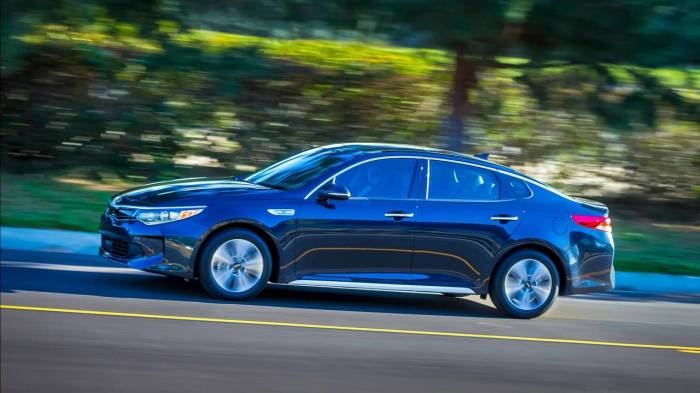Fuel efficient hybrid vehicles offer a smart solution for eco-conscious drivers looking to save on fuel costs while reducing emissions. Let’s explore the world of hybrid vehicles and their impact on the environment and your wallet.
Hybrid vehicles have revolutionized the way we think about fuel consumption and sustainability, paving the way for a greener future on the roads.
Benefits of Fuel Efficient Hybrid Vehicles
Fuel efficient hybrid vehicles offer numerous environmental benefits compared to traditional gasoline vehicles. By combining a gasoline engine with an electric motor, these vehicles are able to achieve better fuel efficiency, resulting in lower emissions of harmful pollutants.
Looking for luxury cars with affordable prices? Look no further! Visit our website to explore a wide range of luxury cars with affordable prices that will surely fit your budget and style.
Reduced Greenhouse Gas Emissions
Fuel efficient hybrid vehicles play a crucial role in reducing greenhouse gas emissions. The use of electric power in hybrid vehicles helps to decrease the amount of carbon dioxide and other greenhouse gases released into the atmosphere. This reduction in emissions contributes to mitigating the impact of climate change.
Cost Savings, Fuel efficient hybrid vehicles
When it comes to cost savings, fuel efficient hybrid vehicles have a significant advantage over traditional gasoline vehicles. While the initial purchase price of hybrid vehicles may be slightly higher, the long-term savings on fuel costs make them a more economical choice. With rising fuel prices, hybrid vehicles can offer substantial savings over the lifespan of the vehicle.
When it comes to reliability, we’ve got you covered. Check out our selection of the most reliable cars on the market that will give you peace of mind on the road.
Types of Fuel Efficient Hybrid Vehicles

When it comes to fuel-efficient hybrid vehicles, there are several types available in the market, each offering unique features and benefits. Let’s take a closer look at the different options:
Plug-In Hybrid Vehicles
Plug-in hybrid vehicles, also known as PHEVs, are equipped with a larger battery than traditional hybrids, allowing them to be charged by plugging them into an electrical outlet. This enables them to run on electric power alone for a certain distance before switching to the gasoline engine. The key feature of plug-in hybrids is their ability to operate purely on electric power, reducing emissions and fuel consumption significantly.
Mild Hybrids
Mild hybrids incorporate a smaller electric motor and battery compared to full hybrids. They are designed to assist the gasoline engine during acceleration and other high-demand situations, improving fuel efficiency without the need for frequent charging. Mild hybrids use regenerative braking to recharge the battery and enhance overall efficiency without compromising performance.
Factors Affecting Fuel Efficiency in Hybrid Vehicles
When it comes to fuel efficiency in hybrid vehicles, several factors come into play that can significantly impact their performance. Understanding these factors is crucial for maximizing the benefits of hybrid technology.
Role of Regenerative Braking
Regenerative braking is a key feature in hybrid vehicles that helps improve fuel efficiency. When the driver applies the brakes, the kinetic energy from the moving vehicle is converted into electrical energy by the electric motor, which is then stored in the battery for later use. This process reduces the reliance on the gasoline engine to slow down the vehicle, thus saving fuel in the process.
Aerodynamics and Fuel Efficiency
Aerodynamics play a crucial role in enhancing the fuel efficiency of hybrid vehicles. By reducing drag and optimizing airflow around the vehicle, manufacturers can improve the overall efficiency of the vehicle. Features such as sleek design, underbody panels, and active grille shutters help reduce air resistance, allowing the vehicle to move more smoothly through the air and consume less fuel in the process.
Impact of Vehicle Weight
The weight of the vehicle also has a significant impact on its fuel efficiency and performance. Heavier vehicles require more energy to accelerate, decelerate, and maintain speed, leading to higher fuel consumption. Hybrid vehicles with lighter materials, such as aluminum or carbon fiber, can improve fuel efficiency by reducing the overall weight of the vehicle. Additionally, optimizing the vehicle’s weight distribution can also enhance its handling and efficiency on the road.
Maintenance Tips for Fuel Efficient Hybrid Vehicles
Proper maintenance is key to ensuring the fuel efficiency of hybrid vehicles. Below are some tips to help you maintain your vehicle for optimal performance:
Battery Health Maintenance
One of the most crucial components of a hybrid vehicle is its battery. To maintain battery health and ensure optimal fuel efficiency, consider the following:
- Avoid deep discharges by keeping the battery charged between 40% to 80%.
- Regularly check the battery cooling system to prevent overheating.
- Follow the manufacturer’s guidelines for battery maintenance and replacement.
- Consider investing in a battery conditioner to prolong battery life.
Importance of Regular Servicing
Regular servicing plays a vital role in improving the overall fuel efficiency of hybrid vehicles. Here’s why it’s essential:
- Regular maintenance helps identify and address any potential issues before they escalate.
- Optimal tire pressure, clean air filters, and fluid levels all contribute to fuel efficiency.
- Professional servicing can optimize the performance of hybrid systems for maximum efficiency.
Driving Habits for Fuel Efficiency
Simple changes in driving habits can significantly impact the fuel efficiency of hybrid vehicles. Consider the following tips:
- Accelerate and decelerate smoothly to reduce the strain on the engine and battery.
- Avoid excessive idling and use eco-driving modes when available.
- Maintain a steady speed on highways and avoid aggressive driving behaviors.
- Plan your trips efficiently to minimize unnecessary mileage and maximize fuel efficiency.
Final Conclusion
In conclusion, fuel efficient hybrid vehicles not only benefit the environment but also provide significant cost savings for drivers. By incorporating innovative technology and smart driving habits, these vehicles are leading the way towards a more sustainable transportation future.